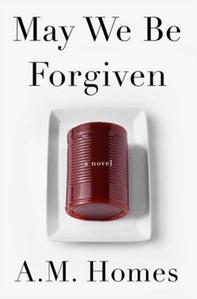

Living in a sleepy Westchester suburb and teaching apathetic college students, Harold is plagued with fantasies he can barely admit to himself. Harold's one decisive act in an otherwise aimless existence--to allow his brother George's wife, Jane, to seduce him--leads to gruesome tragedy and the dramatic reconfiguring of his life. George ends up behind bars for murder, Harold's wife divorces him and Harold finds himself the primary guardian of George's two preteen children. Harold himself has no experience with children, feels responsible for their mother's death and is finally beginning to realize how much of his life he has lived in the shadow of his towering younger brother.
A high-flying, psychopathic TV executive, George bullied Harold throughout their childhood and manages to continue terrorizing him even from jail. Confronting the wreckage of his life, Harold comes to realize that just as understanding the history of America--in the form of Richard Nixon, one of its most provocative figures--is critical to understanding the contemporary nation, Harold's own personal history is integral to who he has become. But Harold also dares to hope that history does not have to be destiny, that there is still a chance for him to somehow emerge from George's shadow.
Before Harold can begin the task of rewriting his own history and that of his broken family, a series of bizarre adventures ensue that includes the alluring world of Internet sex, a treatment facility where George is treated like a movie star and a secret cache of short stories written by Nixon himself. Despite its serious subject matter, the dialogue in May We Be Forgiven consists of snappy comebacks reminiscent of Seinfeld and Woody Allen movies. In the Westchester of A.M. Homes, irony is the pervasive flavor--but ultimately even this is overridden by the importance of family and relationships in a time of anxiety. --Ilana Teitelbaum
Shelf Talker: A novel of suburban life in post-9/11 New York that combines deep melancholy with crackling, satirical dialogue.

